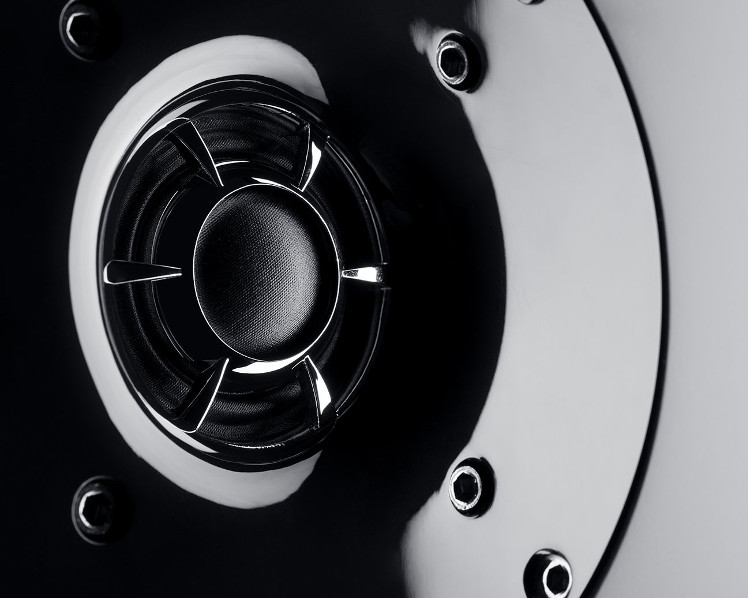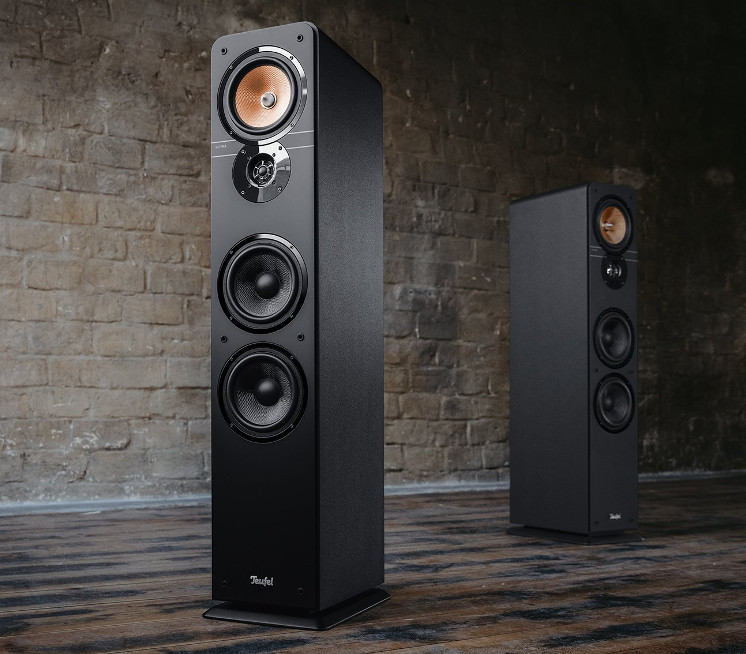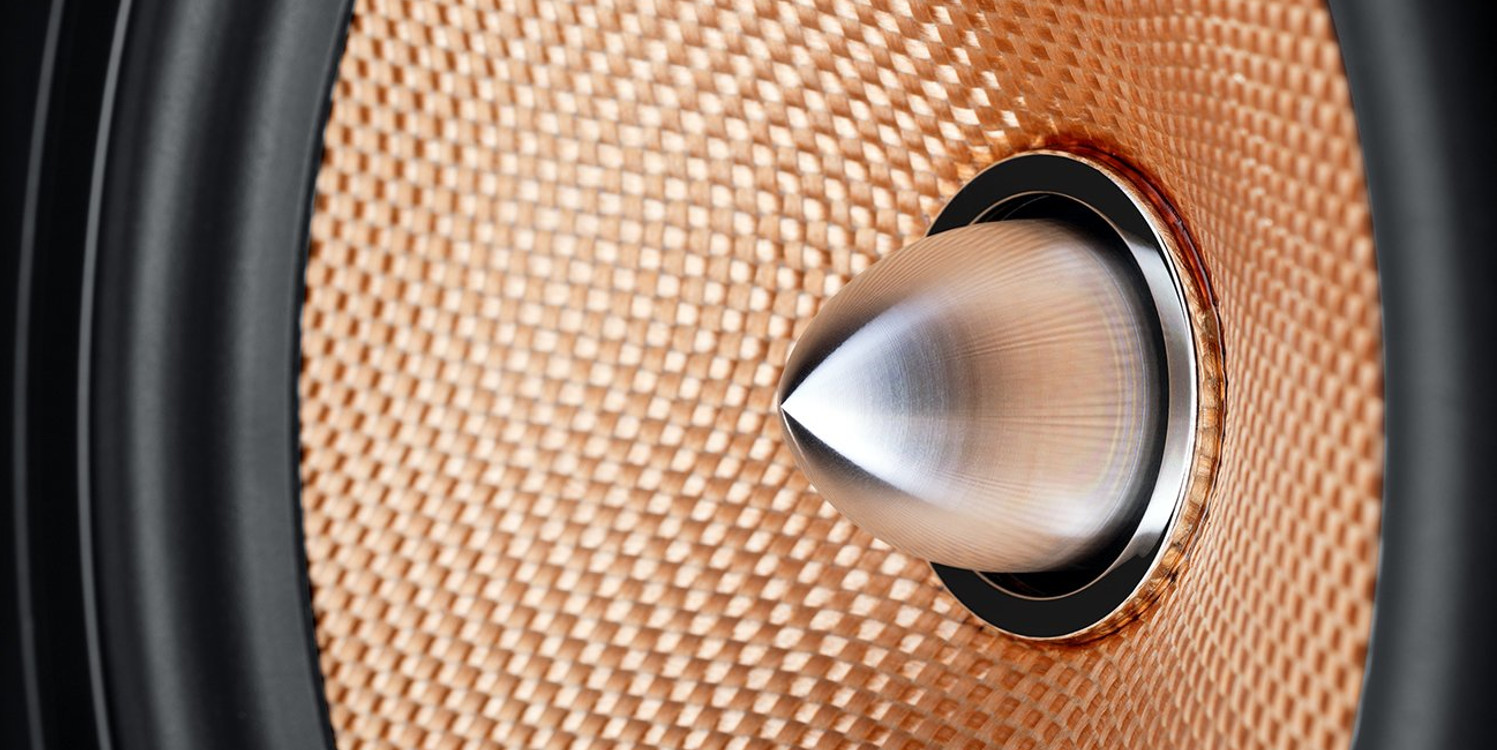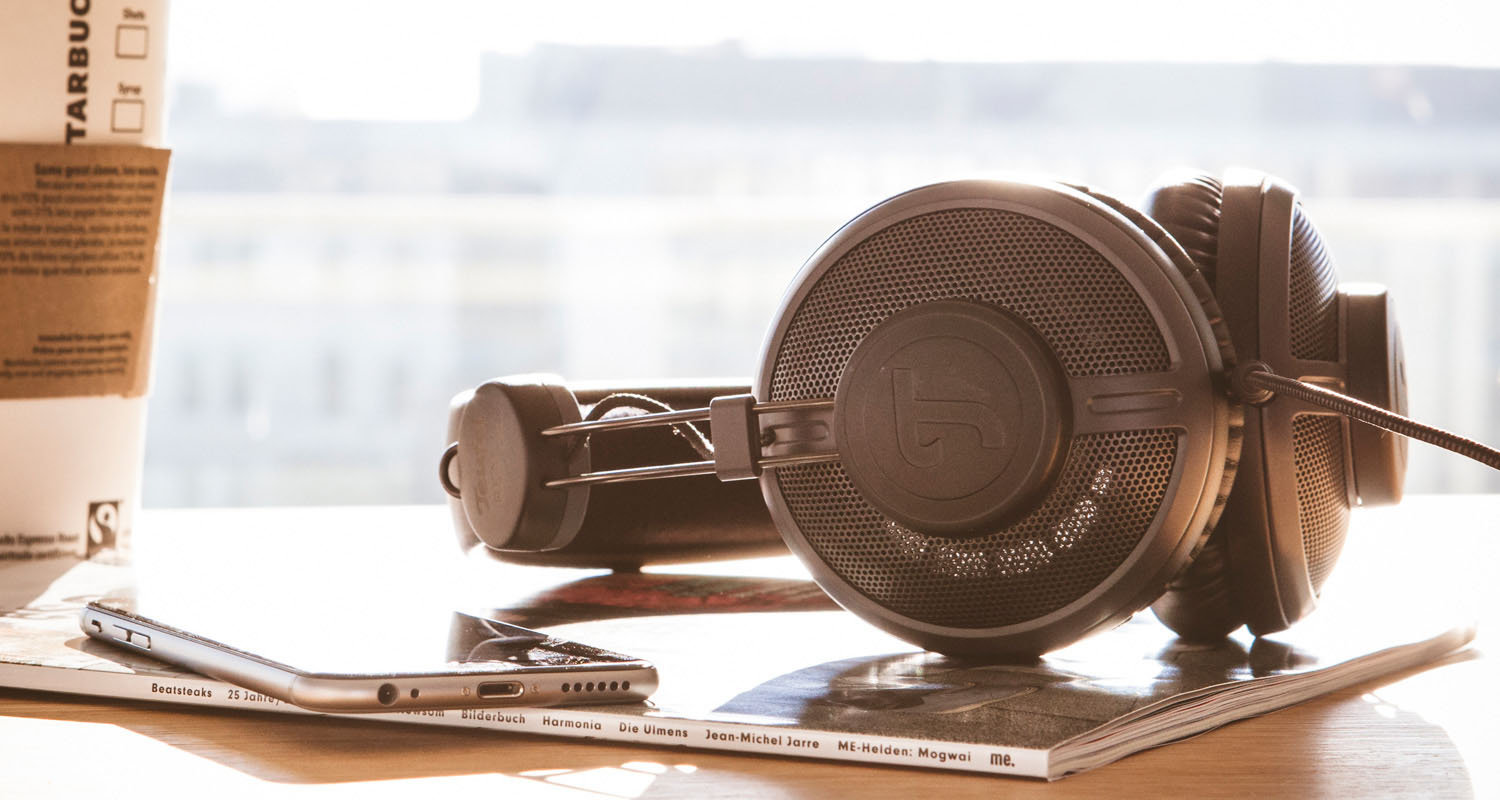In the realm of Hi-Fi speakers, good sound often comes down to the details. Phase plugs and waveguides are two construction methods that have been developed to get the most out of sound transducers. These devices influence the dispersion behaviour and the sound reflections. The aim – as so often in loudspeaker construction – is to produce the cleanest possible sound with a linear frequency response. We’ll explain how these two devices work, which were also used to upgrade our new Ultima series.
Phase plugs: clearer sound through more precise radiation
Phase plugs are placed in the middle of the transducer diaphragmOpens in new tab instead of dust caps. The plug is a fixed, mostly metallic element. It is directly connected to the core of the transducer consisting of voice coil and magnet. Essentially, this design variant results in a more precise radiation pattern. This is particularly complex in the mid and high frequency range and susceptible to audible changes in the frequency responseOpens in new tab.
A phase plug primarily minimises sound reflections within the transducer, which in the worst case can lead to cancellation of certain frequencies due to phase shifts between directly radiated and reflected sound waves. Such cancellations can have an audible negative effect on the frequency response in serious cases. Speakers with a dustcap instead of a phase plug are susceptible to early sound reflections due to the cavity between cap and transducer.
Stereo sound from Teufel
[product id=”31030,31031,27019″]
Another positive effect of a phase plug is the improved cooling of the transducer. The heat generated during speaker operation is dissipated from the voice coil by the metallic phase plug. With conventional dust caps, this effect is omitted because they are not made of metal and are not connected to the core of the transducer.
The waveguide – a kind of mini horn

Waveguides are another design feature of tweeters. Loudspeakers equipped with a waveguide have an attachment that slightly concentrates the radiated sound waves or directs them within the radiating axis. The purpose of this design is to create a frequency response that is as linear as possible and to slightly amplify the sound pressure level. The amplification is achieved by a better coupling to the ambient air – similar to a horn, but significantly attenuated.
The slightly directional dispersion also reduces room reflections. The direct sound at the listening position is more effective. This effect can occur particularly in rooms with longer reverberation times. A further positive effect of the bundled dispersion behaviour of “flat horns” is the minimisation of sound reflections on the housing wall.
Legendary tuning – the update of the Ultima series

Our Ultima 40Opens in new tab has been one of the best loudspeakers in its segment for years. But we didn’t rest on our laurels. Our developers have thoroughly analysed the Ultima again and carefully updated it. Part of the update is a newly developed phase plug for the tweeter. Like its predecessor, the Kevlar mid-range driver uses a phase plug.
- ▶ Floor-standing speakers with a sophisticated 3-way system as an all-round solution for music, movies and gaming
- ▶ Newly developed phase plug and waveguide for even better performance in the tweeter range (25 mm tweeter)
- ▶ Outstanding bass performance, thanks in part to double-tube bass reflex ports
- ▶ Elegant and timeless style thanks to high-quality materials, first-class workmanship and a new matte surface – with or without fabric grille, depending on your taste
While the Ultima can provide rooms of up to 35 sqm with sound, we have developed the Ultima 20Opens in new tab for smaller rooms up to 20 sqm.
- ▶ Compact 2-way speakers for shelf mounting, feet or wall mounting (integrated wall bracket)
- ▶ Improved tweeter with phase plug within the 2-way system
- ▶ A powerful bass reflex system has been implemented inside the bookshelf speakers
- ▶ As with the floor-standing speaker pair, the Ultima 20 feature a matte surface with high-gloss tweeter and Kevlar mid-range with phase plug
AV receivers for our passive speakers
[product id=”31044,27995″]
The most important facts about phase plugs and waveguides
- A phase plug is placed in the middle of the speaker membrane.
- It prevents sound reflections inside the transducer and also serves for better heat dissipation.
- Waveguides are used to guide or bundle sound in the high-frequency range.
- They also contribute to a harmonious sound image due to their improved radiation characteristics.



